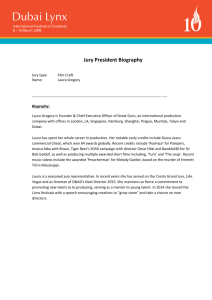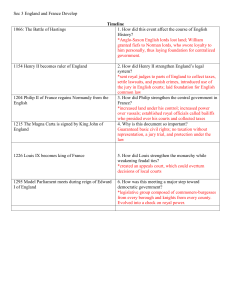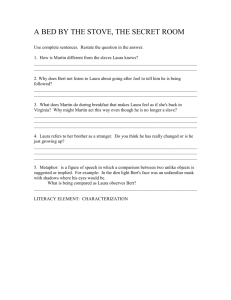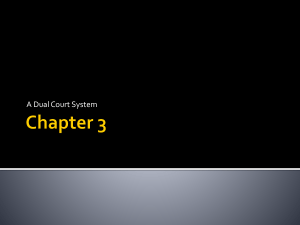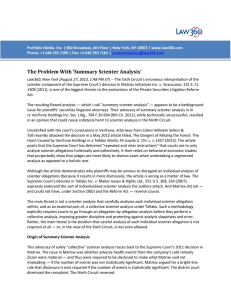Learn More
advertisement
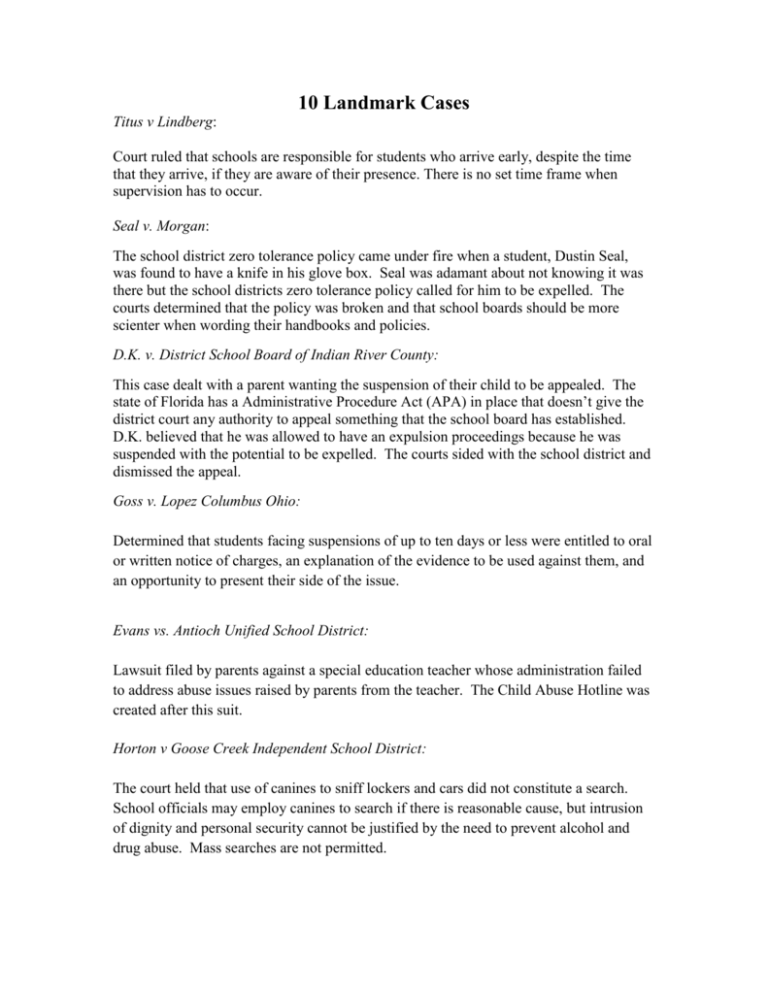
10 Landmark Cases Titus v Lindberg: Court ruled that schools are responsible for students who arrive early, despite the time that they arrive, if they are aware of their presence. There is no set time frame when supervision has to occur. Seal v. Morgan: The school district zero tolerance policy came under fire when a student, Dustin Seal, was found to have a knife in his glove box. Seal was adamant about not knowing it was there but the school districts zero tolerance policy called for him to be expelled. The courts determined that the policy was broken and that school boards should be more scienter when wording their handbooks and policies. D.K. v. District School Board of Indian River County: This case dealt with a parent wanting the suspension of their child to be appealed. The state of Florida has a Administrative Procedure Act (APA) in place that doesn’t give the district court any authority to appeal something that the school board has established. D.K. believed that he was allowed to have an expulsion proceedings because he was suspended with the potential to be expelled. The courts sided with the school district and dismissed the appeal. Goss v. Lopez Columbus Ohio: Determined that students facing suspensions of up to ten days or less were entitled to oral or written notice of charges, an explanation of the evidence to be used against them, and an opportunity to present their side of the issue. Evans vs. Antioch Unified School District: Lawsuit filed by parents against a special education teacher whose administration failed to address abuse issues raised by parents from the teacher. The Child Abuse Hotline was created after this suit. Horton v Goose Creek Independent School District: The court held that use of canines to sniff lockers and cars did not constitute a search. School officials may employ canines to search if there is reasonable cause, but intrusion of dignity and personal security cannot be justified by the need to prevent alcohol and drug abuse. Mass searches are not permitted. New Jersey v. T.L.O. (1985): When an educator has reasonable suspicion to conduct a school-related search, no constitutional violation is in question. Obtaining a warrant before a search would interfere with the swift disciplinary procedures needed in the schools. Pyle v. The South Hadley School Committee, Tinker v. Des Moines and Bethel School District v. Fraser: Courts upheld that the regulations and banning according to school policies and committee findings of the obscene clothing/signs/flags did not violate students’ First Amendment rights. Public schools have the authority to prohibit vulgar and offensive language and symbols. Langley v. Monroe County School District: Laura Langley was a high school student who drove her parents car to school and was unaware of a half full beer can that her mother had left in from the weekend. An assistant principal saw the car without a parking pass and subsequently noticed the beer and found that it was in fact Laura’s car for the day. The school district has a zero-tolerance policy Laura was sent to an alternative school for 30 days. Her parents brought it to district court on the basis of her constitutionally protected property interests being violated. The case was brought to a jury and the jury came back with a verdict that supported the school district. Hosemann v Oakland Unified School District: This case, along with Doe v Taylor, dealt with making the school environment safe and conducive for students. This represented the first time a court interpreted a state constitutional amendment that grants students and staff an “inalienable right” to attend campuses that are safe, secure, and crime free.
